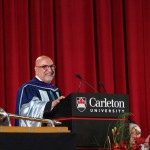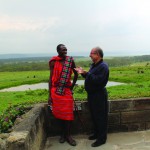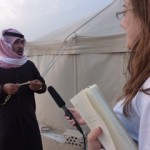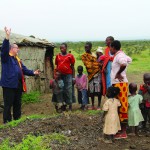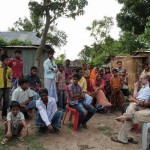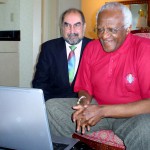FAQ
FREQUENTLY ASKED QUESTIONS
Answers & Downloads
?Who is Firdaus Kharas?
?What has Firdaus Kharas created?
?What awards has Firdaus Kharas won?
?What do people say about Firdaus Kharas and his work?
?Who is Jasmine El Mulki?
Jasmine is Managing Director and Producer of Chocolate Moose Media Sarl, the Swiss entity which was incorporated in partnership with Firdaus in 2010.
Before Chocolate Moose Media, Jasmine has been Associate Producer with Academy Award winning independent film production house BreakThru Films in London, working on animation and live action projects and managing European distribution.
Jasmine has a diploma in Script Development from the National Film and Television School of England, and has a BA in Cultural Anthropology and a Masters in Cultural Studies from Goldsmith’s College University of London.
Jasmine produced her first short documentary in 2004 but rather than wanting to evolve on a classic cinematographic path, her interest in communication techniques led her to first dive into the interactive world. She so joined the United-Kingdom’s largest independent Radio and Sound Direction company Somethin’Else where she worked on live and interactive online content productions such as the BBC's Africa Beyond websites and the BBC World Music Awards.
Jasmine is the Senior Sound Producer on seven of Sony International’s PS2, PS3 and PSP games called Buzz! Quiz Show which are international best sellers.Passionate about the environment and human rights issues, which for Jasmine are nothing else but two faces of the same coin, she developped a 46 episode inspirational teenage drama series called ‘Notes From Nature’that aims to trigger and support a healthy and responsible attitude towards the environment and wildlife conservation. She is also a Producer of No Excuses, the global domestic violence prevention campaign available in 16 languages today, and a Producer of the next Ebola prevention video.
Jasmine speaks English, French, German, Swiss German, Arabic and Italian, and some Spanish.
You can contact her directly on jasmine@chocmoose.com, or read more about her on the francophone pages of this website
FAQ
?Who is Firdaus Kharas?
Firdaus Kharas is a pioneering social innovator using animated media to better the human condition across cultures and boundaries.
A Canadian citizen, Firdaus Kharas was born November 18, 1955 in Calcutta, India into an upper-middle class Parsi family during Calcutta’s most turbulent period of social upheaval, which would influence his entire life. First introduced to progressive causes by his mother, an NGO head, he was taught the realities of disenfranchised people and at age eight was taken to Mother Teresa’s Home for the Dying. He attended high school in Bombay, India where he taught in a slum every weekend for three years.
He left India to attend high school in Pennsylvania, USA as the first recipient of the Rotary Club of Bombay’s international exchange-student scholarship. He then achieved a BA (political science) at Thiel College, Pennsylvania (1978) where, in his final year, he won the National Model United Nations debate. Kharas was awarded a full scholarship to complete an MA at Carleton University’s Norman Paterson School of International Affairs in Ottawa (1980). His masters' thesis was on human rights and human security and he wrote a draft international Convention Against Torture.
A believer in lifelong education, he has continued studying: marketing and law at the University of Ottawa; senior management at Harvard University’s Kennedy School of Government; and social innovation at Stanford University Business School’s Centre for Social Innovation.
Kharas has an honorary Doctor of Humanities from Thiel College and is an Honorary Fellow at the American Intercontinental University (London). He has been honored over 70 times for his humanitarian work including a prestigious Peabody Award.
Kharas founded his own international consulting company, wrote two books, has served as Executive Director of the United Nations Association in Canada (where he was awarded a United Nations Peace Medal by the UN Secretary General, Javier Perez de Cuellar), Policy Advisor (Immigration) to the Minister of Employment and Immigration and Assistant Deputy Chairman of the Immigration and Refugee Board. In 1995 his desire to impact global social problems drew him into the private sector, into media production.
?How did Firdaus Kharas journey from being a UN and government official to working in the media industry?
Kharas created a company in 1995 that combines commercial work and nonprofit campaigns. His current work on cross-cultural communications on issues like human rights, children’s rights and disease prevention draws on his previous work in international affairs and government.
From the start in 1995, he did commercial television series but simultaneously began creating short form animation to better the human condition. Short-form animation launched him on the global stage and is what he is now best known for, although he still undertakes a combination of both commercial and nonprofit work.
?From the start in 1995, he did commercial television series but simultaneously began creating short form animation to better the human condition. Short-form animation launched him on the global stage and is what he is now best known for, although he still undertakes a combination of both commercial and nonprofit work.
Describing himself as a social innovator, Kharas' current work is a mix of commercial television series and nonprofit campaigns. He focuses his campaigns on innovative solutions to some of the world's toughest issues by creating various types of media to effect societal and individual behavioral change through mass communications spanning across many cultures and countries to better the human condition. For the past 18 years Kharas has created innovative animated media specifically to create society-level and individual behavior change across the globe.
Kharas creates global communications programs to confront and overcome the many fault lines separating human beings: language and culture; religion and ethnicity; tradition and history; stereotype and stigma; racism and prejudice; hatred and fear.
Among other topics his media has dealt with are:
- governance: universal values, human rights, children's rights, racism;
- education: literacy promotion; early childhood education, middle children's education, street children, children at risk, training in mass communications;
- migration: refugees, child refugees;
- health: dementia, suicide;
- disease prevention: HIV/AIDS prevention, malaria prevention; Vitamin A deficiency;
- violence: rape within families, rape in a situation of conflict, various forms of sexual abuse, using culture as a justification for violence, perceived rights to commit violence within families, genderrelated violence, violence against children;
- culture: the preservation of cultures especially in Africa, the Middle East and Asia.
?What is Firdaus Kharas best known for?
Firdaus Kharas has created, directed and produced 2,395 animated behavior change communications shorts in six series, used in over 150 countries, after adaptation into over 90 languages with a potential reach of over 5.75 billion people in their own language. The campaigns are on children's rights, universal values, HIV/AIDS prevention, malaria prevention and domestic violence prevention.
Kharas is currently creating a campaign to shift millions of people away from harmful sources of energy like burning kerosene and cow dung towards clean, renewable solar energy.
Kharas created what has been called “the world’s most difficult mass communications project”, Hind and Hamza, a series of 46 animated shorts to teach universal values like gender equality, racism prevention, fostering open dialogue, accepting others, child labor prevention and others, to children in 27 countries across the Middle East and into Europe, Africa and Asia, reaching directly into 350 million households.
On most campaigns Kharas assembles and directs volunteers to create the campaigns, paying himself for the costs for producing, marketing and distributing the campaigns free of charge to any requester anywhere in the world. He has distributed thousands of tapes and DVDs of his campaigns.
?What else has Firdaus Kharas done?
In long-form television series, Kharas has produced a number of firsts: the first preschool animated series in Arabic; first animated series based on African culture; first animated preschool series in Holland; and other pioneering series seen across many countries.
Partnering with the Malaysian Royal Family (Jaafar of Negeri Sembilan), Kharas created City of the Rich , Asia’s first English-language daily soap opera that ran for 200 one-hour episodes. He then focused on cultural content with the 300-episode animated series Nan and Lili (2008) - the only Arabic language animated series for preschoolers - and Magic Cellar (2006) - the first series about African culture for children. As a speaker, Kharas has appeared at numerous events like Yale University’s Unite For Sight (2013) and advised graduating students during commencement speeches. He sits on television juries for the likes of the International Academy of Television Arts and Sciences’ International Emmy Awards as well as presiding over juries for such festivals as the Cairo International Film Festival for Children.Magic Cellar won 29 international-festival awards and was bought by HBO in the US, thus for the first time exposing American children to African culture via an animated series.
Kharas has produced six documentary films, including A Child Without a Country: Pedro about Canada’s refugee system and No Thanks, We’re Fine (Non merci, ca va) about caregivers to people with dementia.
As a speaker, Kharas has appeared at numerous events like Yale University’s Unite For Sight (2013) and advised graduating students during commencement speeches. He sits on television juries for the likes of the International Academy of Television Arts and Sciences’ International Emmy Awards as well as presiding over juries for such festivals as the Cairo International Film Festival for Children.
?A documentary, Firdaus Kharas: The Animated Activist (2013) has recently been completed about his work. What is the film about?
Meet the man changing the world through animation. With few resources and a fierce will, Firdaus Kharas has created six series of behavior-change animated shorts to prevent AIDS, malaria and domestic violence and to promote children’s rights. He has adapted them into 90 languages for distribution in 150 countries.
Shot over four years in seven countries, The Animated Activistchronicles No Excuses, this Peabody Award-winner’s boldest campaign: to prevent domestic violence against women and children by humorously attacking such justifications as culture and religion. The result is an intimate portrait of how and why real human rights start with individuals.
The film made by Chispa Productions, an independent production company, and directed by Randy Kelly, will be launched in the fall of 2013 in film festivals around the world. Film festivals, universities, animation schools and animators in particular will find it interesting. Kharas' hope is that the film will inspire others to get involved by creating animation that will save lives. He says, “It's not easy but it can be done”.
?How does Firdaus Kharas identify issues for his animated shorts?
Kharas has traveled to over 140 countries and wherever he travels he sees needs that can be addressed by behavior change communications: deaths that can be prevented, children that can be educated, economic activity that can be increased, poverty that can be eliminated and lives that can be made better.
He has developed criteria to choose the topics on which he focuses: issues must be broadly based in multiple countries across numerous cultures and must be susceptible to improvement via individual behavior change. Kharas says his “intention is to shine a light where there is darkness”.
All Kharas’ campaigns rest on eight pillars:
- animation
- comedy
- prevention;
- health: dementia, suicide;
- free distribution
- multilingual
- global reach across cultures
- tackling the most difficult issues
?Why animation?
Animation:
- is globally accepted
- works are non-realist
- allows the suspension of disbelief
- is easy to translate and easy to sync into other languages
- can reach any audience
- allows the creation of universal characters
- allows for innovation
- is the easiest way to reach very large numbers
- is highly cost effective
- provides more choices
- allows for a variety of formats for distribution
- allows for a variety of lengths, topics and possibilities
- is perfect for distribution via mobile devices
- can be interactive
?What are Kharas’ main campaigns?
No Excuses, Buzz & Bite, and Three Amigos are three global campaigns and Hind and Hamza is a regional campaign created by Firdaus Kharas.
No Excuses
The No Excuses campaign is a series of 11 animated spots targeted directly at the abuser to prevent domestic violence and abuse. The intention is that series will be ultimately adapted into 73 languages, enabling a potential reach of 85% of the world's population in their own language. Launched at the United Nations, the series is online in multiple languages and available for download and use by any user anywhere in the world. Tapes and DVDs are sent out free of charge upon request to Firdaus Kharas. The series is also available on YouTube.
Domestic violence and abuse is a global problem, reaching into every country and community. It knows no boundaries of race, color, gender, economic or political status. Kharas chose comedy to create messages that are nonthreatening, non-authoritarian and broadly appealing across all age groups, social strata and cultural boundaries. Most campaigns on domestic violence and abuse deal with post-violence education and create unintended messages such as showing the image of a battered person. Kharas believes that showing such images does nothing to create behavior change by the abuser and instead serves to further stigmatize the victims of violence. The No Excuses campaign deals with preventing violence.
Topics for the shorts were thoroughly researched, the scripts written over two years, and cover:
- Preventing cultural justifications of violence
- Preventing abuse within partnerships and marriages
- Challenging the perceived right of men to commit violence
- Preventing sexual abuse of women
- Preventing rape
- Preventing escalation of frustration into abuse
- Breaking the inter-generational cycle of violence
- Preventing violence by mothers against children
- Preventing violence by fathers against children
- Preventing verbal abuse of children and the elderly
- Preventing rape by soldiers
Buzz and Bite
Buzz and Bite is an extensive series of animated spots to combat malaria infection. So far, 30 animated spots have been created in 23 languages, with an additional 16 dialects for Madagascar. When completed in 40 languages, the campaign will consist of 1,400 animated and audio PSAs, making the series one of the world's largest PSA campaigns on any subject.
p>The series, created, produced and directed by Kharas, features two humorous animated anopheles mosquitoes to stress the importance of using long-lasting insecticide-treated bed nets to prevent malaria infection. The series was launched in Ottawa and in New York at the United Nations in advance of World Malaria Day, April 25, 2008. The series has the strong support of Archbishop Desmond Tutu. Over half of the world's malaria prevalent countries are using the campaign in some way. Like all his other campaigns, Kharas sends tapes and DVDs free of charge to anyone who directly requests them. The campaign is also available on YouTube.
The Three Amigos
The Three Amigos is a series of purposely-varied animated spots that use humor to counter the spread of HIV/AIDS. The series, directed and produced by Kharas, has been adapted into 45 languages, thereby enabling a potential reach of over 5.5 billion people or approximately 80% of the world’s population in their own language. The Three Amigos has been used extensively in a wide variety of countries, ranging from liberal democracies to conservative theocracies, from countries in southern Africa where AIDS is rampant, to countries preventing an AIDS crisis in Asia and Eastern Europe. Broadcasters have donated millions of dollars worth of free air time to broadcast the series, in some cases up to 20 times a day. Thousands of health clinics, hospitals, nongovernmental organizations and universities across the world in over 150 countries use the series.
The Three Amigos series has received 30 international awards including a prestigious Peabody Award and hundreds of articles in many languages have been written on its creation and impact. Nobel Laureate Archbishop Desmond Tutu is the principal supporter who has called the series “a powerful communicating tool” and has written "in creating The Three Amigos PSA's [you] have made an outstanding contribution to the campaign against HIV infection in providing material that can be easily understood by most people irrespective of language or culture". Tutu also said, in an open letter, "we need efforts like yours" and called Kharas' work "... a powerful communicating tool to encourage people to change their behaviour... an outstanding contribution...” Hundreds of testimonials from around the world have been received from every walk of life, from powerful government officials to AIDS educators to ordinary people who's behavior has been influenced by the series.
The hand-drawn series was animated in India. As with the all the other campaigns, tapes and DVDs are sent out free of charge to anyone who directly requests them. The campaign is also available on YouTube.
Hind and Hamza
Hind and Hamza is a unique series of 46 animated shorts designed to teach Arabic-speaking children universal values. The series fosters: gender equality, racism prevention, open dialogue, accepting other cultures and histories, truthfulness and honesty, being cooperative, positive attitudes, avoiding excess, patience and determination, accepting foreigners, child labor prevention and other universal values. The series was created and directed by Kharas and aired on the Al Jazeera's Children's Channel, reaching on a daily basis into over 350 million Arabic-speaking households across 27 countries of the Middle East and into Europe, Africa and Asia. The channel is considered to have the greatest penetration of any children’s channel in Arabic.
Although tackling extremely sensitive issues, Kharas managed to create a mass communications behavior change series on universal values targeting children aged 9 to 11 in Arabic in the Middle East without creating a storm.
?What is Firdaus Kharas currently working on?
Kharas is working on his next campaign during the summer of 2013. The Solar Campaign is an integrated, high-impact, global, multilingual, behavior-change communications campaign designed to increase awareness of solar energy in general and the use of solar lights in particular. The objective of the campaign is to improve the lives of millions of people.
The Solar Campaign seeks to increase the demand for solar lighting, in particular solar-powered lights for consumer use as part of the United Nations-led effort to increase access to energy. More than 1.6 billion people lack access to electricity. Another 1 billion have intermittent and unreliable access to electricity. Instead, the world’s energy poor use kerosene, candles, wood, cow dung and other traditional fuels for lighting. As the World Bank says, “the ramifications are profound”.
Hundreds of millions of people can convert to clean, renewable energy in the next few years if barriers and obstacles can be overcome. Adopting solar lights in households dramatically and immediately improves the lives of the recipients. The campaign will impact on:
- health, both the health of individuals including bronchial infections that can cause disease and death from burning fuels like kerosene; and from fires caused by overturned open-flame lamps and fires. A recent epidemiological study in Nepal led by researchers at UC Berkeley’s School of Public Health found that women who used kerosene lamps in the home had 9.4 times the rate of tuberculosis found in households that did not use such lamps;
- income via poverty alleviation and income-generating activity, including increasing productive hours in the evening;
- the environment as the pollution caused by burning kerosene for lighting is estimated to be the equivalent of 30 million cars. One kilogram of black carbon produced by the kerosene lamp can cause as much warming in two weeks as 700 kilograms of carbon dioxide circulating in the atmosphere for 100 years;
- education, literacy and child development, especially for children’s education and health;
- household spending, especially by eliminating paying recurring charges for kerosene and mobile phone charging.
On the commercial side, DreamWorks has just announced that August Media Holdings and Kharas are jointly producing the next series of the iconic television series George of the Jungle. The production will be carried out in Toronto and Singapore and will be distributed by DreamWorks Classics.
?Creating campaigns like this takes a lot of funding. How are the campaigns funded, and how can individuals or foundations donate?
Most of the hard costs, including ongoing distribution costs, have been personally covered by Firdaus Kharas. He uses his commercial work to subsidize his nonprofit work. Many individuals and broadcasters have donated their time and talent to support these campaigns.
Without further fundraising the reach of the existing campaigns is severely limited. Individuals and foundations that wish to contribute to current and future campaigns can contact Kharas directly at firdaus@chocmoose.ca.
?What do people say about Firdaus Kharas?
"We need efforts like yours... a powerful communicating tool to encourage people to
change their behaviour... an outstanding contribution..."
NOBEL LAUREATE ARCHBISHOP DESMOND TUTU
"Firdaus Kharas used talking condoms to shift global attitudes about HIV/AIDS and saved
millions of lives in the process"
READER'S DIGEST (CA)
"...a new campaign by ... Kharas could reinvent the do -gooder paradigm. Kharas has
understood the theory of culture shift for a long time."
UNFOLDING ARTS
"I have to admit I was pretty skeptical that issues such as rape and verbal abuse could be
turned into 30 -second humor clips, but I think what Mr. Kharas has done is rema rkable: he
has found tasteful and informative ways to make people laugh and teach them something
at the same time."
RESILIENT AMBASSADORS OF CHANGE
"...Kharas’ work justly fills the void where before... there was a lack of effective strategy"
BLOGCRITICS
"A very powerful tool in communicating to people..."
UNITED NATIONS UNDER-SECRETARY-GENERAL
"...a case where translation has been effectively deployed for the purposes of global social
activism, and where this globalized aspect plays a more positiv e role than usual"
LUISE VON FLATOW IN THE (GLOBALIZED) THREE AMIGOS: TRANSLATING
AND DISSEMINATING HIV/AIDS PREVENTION DISCOURSE
?What is Firdaus Kharas' advice to others?
Kharas encourages others to use their skills and talent to make a difference.
"I get around the obstacles that separate human beings. I go beyond them to think of us as a human family. Using basic, core human values, we can take any issue and create cross-cultural mass-communications to tackle those issues and save or improve the lives of people. Get involved. Humanity needs you!”
?Who is Jasmine El Mulki
Jasmine is Managing Director and Producer of Chocolate Moose Media Sarl, the Swiss entity which was incorporated in partnership with Firdaus in 2010.
Pocketing a BA in Cultural Anthropology and a Masters in Cultural Studies from Goldsmith’s College University of London, Jasmine produced her first short documentary in 2004 as part of her end of year thesis. Following that and a stint as Senior Fundraiser for Southwark TV, she joined the BritDoc team on the very first issue of the internationally-acclaimed documentary film festival in 2006. Having tested her journalistic stride by producing 19 news features as a broadcast journalist back in Switzerland, she joined Palladio Films to start working on feature documentary Nobody is Perfect, winner of the 2009 German Film Awards. Rather than continuing in a classic cinematographic career she decided to jump into the interactive world and joined London-based Sound Direction Company Somethin’Else to assist the BBC online music reviews commissioner and manage the production of the BBC Africa Beyond website. Following this, she became the Senior Sound Producer on seven Buzz! Quiz games production for Sony’s PS2, PS3 and PSP. Since the start of 2008, Jasmine has been an Associate Producer with Academy Award winning independent film production house BreakThru Films working on animation and live action projects and managing European distribution. Jasmine completed her diploma in Script Development at the National Film and Television School of England in 200

